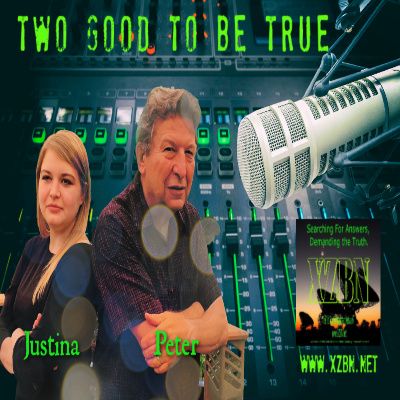TGTBT: New Age Beliefs

Download and listen anywhere
Download your favorite episodes and enjoy them, wherever you are! Sign up or log in now to access offline listening.
Description
New Age is a term applied to a range of spiritual or religious beliefs and practices that developed in Western nations during the 1970s. Precise scholarly definitions of the New...
show moreAs a form of Western esotericism, the New Age drew heavily upon a number of older esoteric traditions, in particular those that emerged from the occultist current that developed in the eighteenth century. Such prominent occult influences include the work of Emanuel Swedenborg and Franz Mesmer, as well as the ideas of Spiritualism, New Thought, and Theosophy. A number of mid-twentieth century influences, such as the UFO religions of the 1950s, the Counterculture of the 1960s, and the Human Potential Movement, also exerted a strong influence on the early development of the New Age. The exact origins of the phenomenon remain contested, but there is general agreement that it developed in the 1970s, at which time it was centred largely in the United Kingdom. It expanded and grew largely in the 1980s and 1990s, in particular within the United States. By the start of the 21st century, the term "New Age" was increasingly rejected within this milieu, with some scholars arguing that the New Age phenomenon had ended.
Despite its highly eclectic nature, a number of beliefs commonly found within the New Age have been identified. Theologically, the New Age typically adopts a belief in a holistic form of divinity that imbues all of the universe, including human beings themselves. There is thus a strong emphasis on the spiritual authority of the self. This is accompanied by a common belief in a wide variety of semi-divine non-human entities, such as angels and masters, with whom humans can communicate, particularly through the form of channeling. Typically viewing human history as being divided into a series of distinct ages, a common New Age belief is that whereas once humanity lived in an age of great technological advancement and spiritual wisdom, it has entered a period of spiritual degeneracy, which will be remedied through the establishment of a coming Age of Aquarius, from which the milieu gets its name. There is also a strong focus on healing, particularly using forms of alternative medicine, and an emphasis on a New Age "science" that seeks to unite science and spirituality.
Centred primarily in Western countries, those involved in the New Age have been primarily from middle and upper-middle-class backgrounds. The degree to which New Agers are involved in the milieu varied considerably, from those who adopted a number of New Age ideas and practices to those who fully embraced and dedicated their lives to it. The New Age has generated criticism from established Christian organisations as well as modern Pagan and indigenous communities. From the 1990s onward, the New Age became the subject of research by academic scholars of religious studies.
Information
| Author | The 'X' Zone Broadcast Network |
| Organization | The 'X' Zone Broadcast Network |
| Website | - |
| Tags |
Copyright 2024 - Spreaker Inc. an iHeartMedia Company

Comments